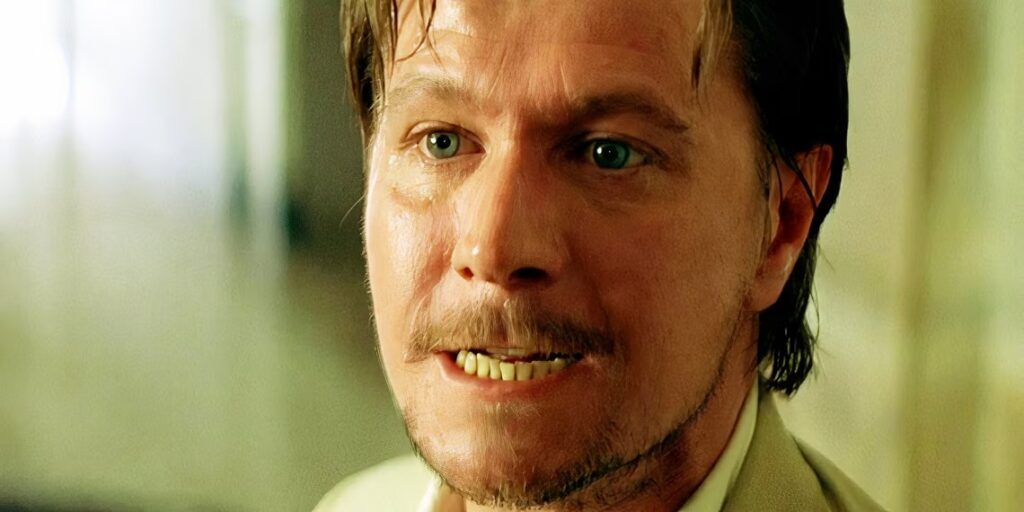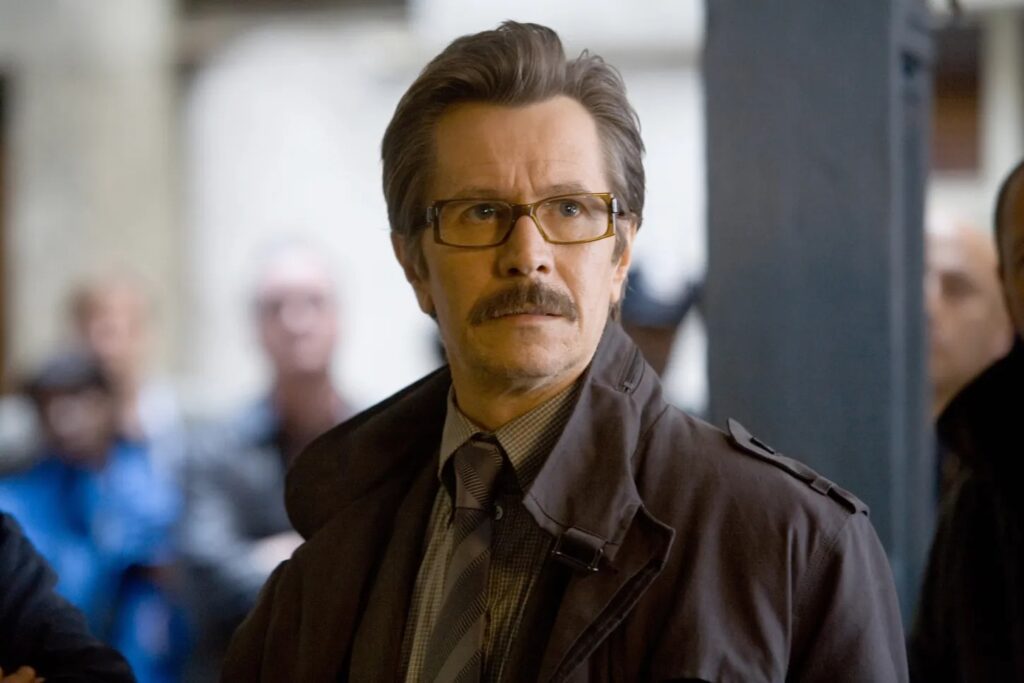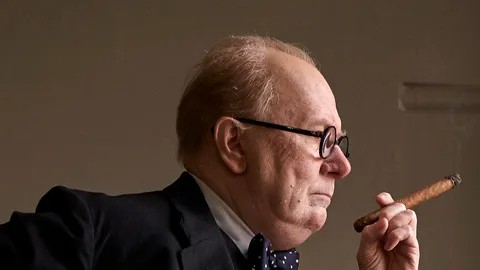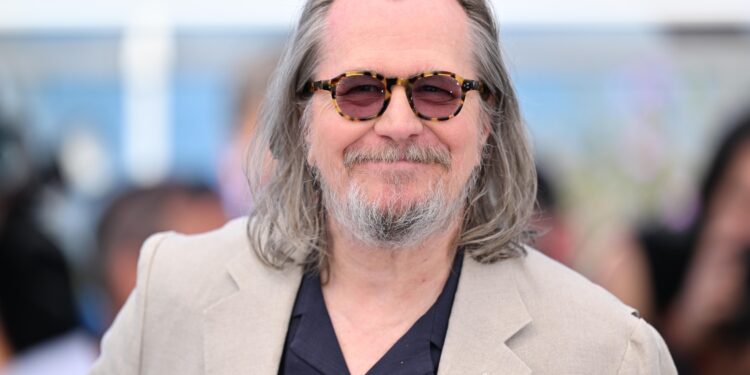From humble beginnings to royal recognition
Gary Oldman’s rise to becoming one of Britain’s most acclaimed actors is a story of perseverance, talent, and versatility. Born in New Cross, London, on 21 March 1958, Oldman grew up in a working-class family with a strong desire to pursue acting despite early obstacles. His first major disappointment came with a rejection from the Royal Academy of Dramatic Art, a setback that might have ended many careers before they began. Instead, Oldman enrolled at Rose Bruford College, where he graduated in 1979, determined to prove his worth on stage and screen.
In his early career, Oldman’s work in theatre earned him critical recognition. Notably, his performance in The Pope’s Wedding captured the attention of industry insiders and critics alike. These early theatrical roles gave him the tools to bring a striking intensity and emotional depth to his future film roles, setting him apart from many of his contemporaries. Over time, his commitment to his craft would lead to one of the most distinguished careers in modern British acting, culminating in his knighthood by King Charles III in June 2025 — an honour recognising both his artistic achievements and his contributions to British culture.




Breaking onto the film scene: a chameleon emerges
Oldman’s cinematic journey began in 1982 with the film Remembrance, a modest but powerful debut that hinted at his potential. However, it was his portrayal of Sid Vicious, the troubled bassist of the Sex Pistols, in Sid and Nancy (1986) that truly announced his arrival. The role demanded a raw physicality and emotional vulnerability that Oldman delivered with chilling authenticity, earning him widespread acclaim. This performance established him as an actor willing to take risks and immerse himself fully in complex, often dark characters.
Throughout the late 1980s and 1990s, Oldman built an impressive and eclectic filmography. His portrayal of playwright Joe Orton in Prick Up Your Ears (1987) showcased his ability to handle nuanced dramatic roles. He continued to experiment with diverse characters, including the comedic yet tragic Rosencrantz in Rosencrantz & Guildenstern Are Dead (1990), and the intense and mysterious Lee Harvey Oswald in Oliver Stone’s JFK (1991).
One of Oldman’s most iconic roles came with Francis Ford Coppola’s Bram Stoker’s Dracula (1992), where his transformation into the legendary vampire combined gothic horror with unexpected tenderness. This role cemented his reputation as a versatile actor capable of both menace and emotional depth.
The 1990s: consolidating a formidable reputation
The 1990s proved to be a prolific decade for Oldman. He starred in a series of memorable films that showcased his range and willingness to tackle challenging roles. In True Romance (1993), Oldman played a menacing mob enforcer, while in Léon: The Professional (1994), his role as a corrupt DEA agent added layers of menace and complexity to the thriller. The Fifth Element (1997) saw him embody the eccentric scientist Jean-Baptiste Emanuel Zorg, a role that balanced villainy with campy humour.
Oldman’s ability to reinvent himself for every role became his trademark. Whether playing historical figures or fictional villains, his commitment to authenticity stood out. His dedication to research and preparation, often involving dramatic physical transformations and meticulous attention to detail, earned him respect within the industry.
Critical acclaim and prestigious awards
Despite a career filled with acclaimed performances, widespread recognition from award bodies came somewhat later for Oldman. His portrayal of Winston Churchill in Darkest Hour (2017) was a breakthrough moment. The role required Oldman to capture the spirit and nuance of one of Britain’s most iconic leaders during a moment of national crisis. His transformative performance, including heavy prosthetics and vocal changes, won him the Academy Award for Best Actor, along with numerous other accolades. This achievement marked a significant milestone and renewed appreciation for his lifelong dedication.
Prior to this, Oldman had received Academy Award nominations for his roles in Tinker Tailor Soldier Spy (2011), where he played the enigmatic spy George Smiley, and Mank (2020), portraying screenwriter Herman J. Mankiewicz. These roles highlighted his range from historical drama to noir, reinforcing his status as one of the most skilled actors of his generation.
In addition to acting, Oldman has also shown his talent behind the camera. His directorial debut, Nil by Mouth (1997), was a gritty, semi-autobiographical portrayal of working-class life in London, praised for its raw honesty and powerful storytelling. The film won several BAFTA nominations and demonstrated Oldman’s ability to craft compelling narratives beyond acting.
A new era: television and recent projects
In recent years, Oldman has embraced television, a medium that has become increasingly prestigious. His starring role as Jackson Lamb, the irascible and often ruthless MI5 agent in the Apple TV+ series Slow Horses (2022–present), has earned him renewed acclaim. The series, based on the novels by Mick Herron, features Oldman’s character leading a team of disgraced spies in a darkly comedic and tense espionage drama. His performance has earned nominations for both Golden Globe and Primetime Emmy Awards, underscoring his continued relevance and adaptability.
Additionally, Oldman’s portrayal of U.S. President Harry S. Truman in Christopher Nolan’s Oppenheimer (2023) reaffirmed his skill at inhabiting historical figures with authenticity and subtlety. The role came at a time when audiences continue to seek nuanced depictions of political leaders, and Oldman delivered a performance that balanced authority with human complexity.
Beyond the screen: a life of dedication and reinvention
Gary Oldman’s career is marked not only by his talent but also by his refusal to be pigeonhole. He has consistently chosen roles that challenge him and defy easy categorisation. Whether playing heroes, villains, or deeply flawed individuals, Oldman’s performances are distinguished by their emotional intensity and psychological insight.
Off-screen, he has maintained a relatively private personal life, focusing on his work and family. His dedication to craft extends to mentoring younger actors and supporting British theatre. His knighthood recognises not only his artistic achievements but also his influence on the cultural fabric of the UK.
A lasting legacy in cinema
The knighthood bestowed upon Gary Oldman is a fitting tribute to a career that has spanned more than four decades. It honours a man whose work has left an indelible mark on film, theatre, and television. Oldman’s journey from humble beginnings to becoming Sir Gary Oldman illustrates the power of perseverance, talent, and a relentless pursuit of artistic truth.
As he continues to take on challenging roles and explore new creative avenues, Sir Gary Oldman stands as a towering figure in British cinema. His legacy is one of transformation — both in the characters he portrays and in the broader landscape of acting itself. With his knighthood, Oldman’s story now shines as an inspiration for aspiring actors worldwide.
newshub finance




Recent Comments